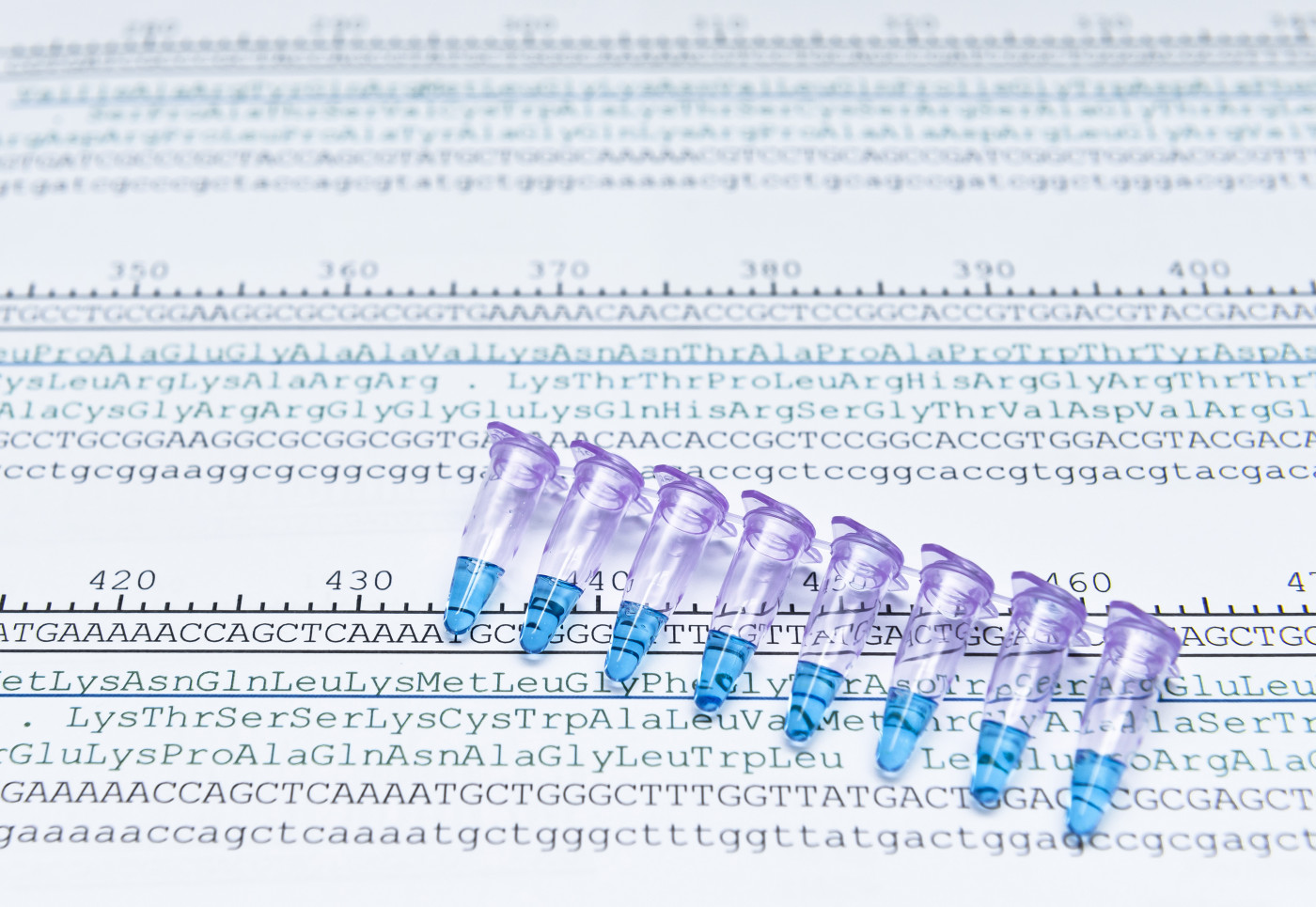Rare Mutations Can Interact With Related Proteins to Promote ALS Progression, Study Shows

Rare genetic mutations that affect functionally related proteins act in a synergistic manner to determine the course of ALS, a new genetic screening study shows. It also points to several new mutations that might lead to this disease.
“We provide evidence for a number of entirely novel genetic variants of ALS caused by mutations in RNA-binding proteins,” its researchers write. “Moreover we show that these mutations act synergistically with each other and with C9ORF72 expansions to modify the clinical phenotype [characteristics] of ALS. A key finding is that this synergy is present only between functionally interacting variants.”
The study, “Targeted Genetic Screen in Amyotrophic Lateral Sclerosis Reveals Novel Genetic Variants with Synergistic Effect on Clinical Phenotype,” was published in the journal Frontiers in Molecular Neuroscience.
It is not fully understood what causes ALS. The disease often appears to be caused by a combination of factors and is considered sporadic. However, in 5 to 10 percent of patients, a pattern of familial inheritance can be observed, suggesting a genetic origin of the disease.
Genetic alterations or mutations in the sequences of the C9orf72 and SOD1 genes have been pinpointed as the main causes of inherited ALS, but other mutations can also be disease-causing.
By looking carefully into ALS-related genes, researchers have found that the majority of them encode proteins that are involved in RNA metabolism, and have a RNA-recognition motif that allows them bind to RNA molecules. This suggests that ALS may be triggered by malfunctions in the RNA metabolism.
To test this hypothesis, researchers with the Project MinE ALS Sequencing Consortium studied if genetic mutations in RNA-binding proteins or C9orf72-binding partners could cause and affect ALS clinical features.
They analyzed the genetic sequence of 274 RNA-binding proteins and known ALS genes in DNA samples collected from 103 ALS patients. The group included 13 cases of familial ALS caused by C9orf72 mutations, and 29 cases with no genetic cause identified. The remaining cases were in younger patients (average age at disease onset: 41) diagnosed with sporadic ALS.
“Our filtering strategy aimed to identify rare deleterious variants rather than common low-risk variants. We also screened for variants in known ALS genes to augment the analysis and validate our strategy,” the researchers wrote.
The team identified 12 new mutations in several ALS genes — ALS2, DCTN1, ELP3, EWSR1, SETX, SOD1, UNC13A, C9orf72, and VCP — which supported the effectiveness of their approach in detecting ALS-associated genetic variants. In total, they identified 90 rare mutations in ALS genes and RNA/C9orf72-binding proteins in 42 patients, six of whom carried more than one variant.
They confirmed that the new genetic variants are significantly more frequent in ALS patients compared to controls.
The number of variants per patient not was associated with disease progression. However, if a patient carried more than one mutation in RNA-binding proteins, or had mutations affecting both C9orf72 and C9orf72-binding partners, that patient was likely to experience a significantly faster disease progression.
The researchers believe that these findings support the oligogenic model of ALS, which suggests that rare variants of functionally interacting genes can act synergistically to promote disease progression.
“Our findings have significant implications for the design of ALS disease models and therapeutics,” the researchers concluded. “Many of the variants identified potentially represent novel causative ALS genes.”






